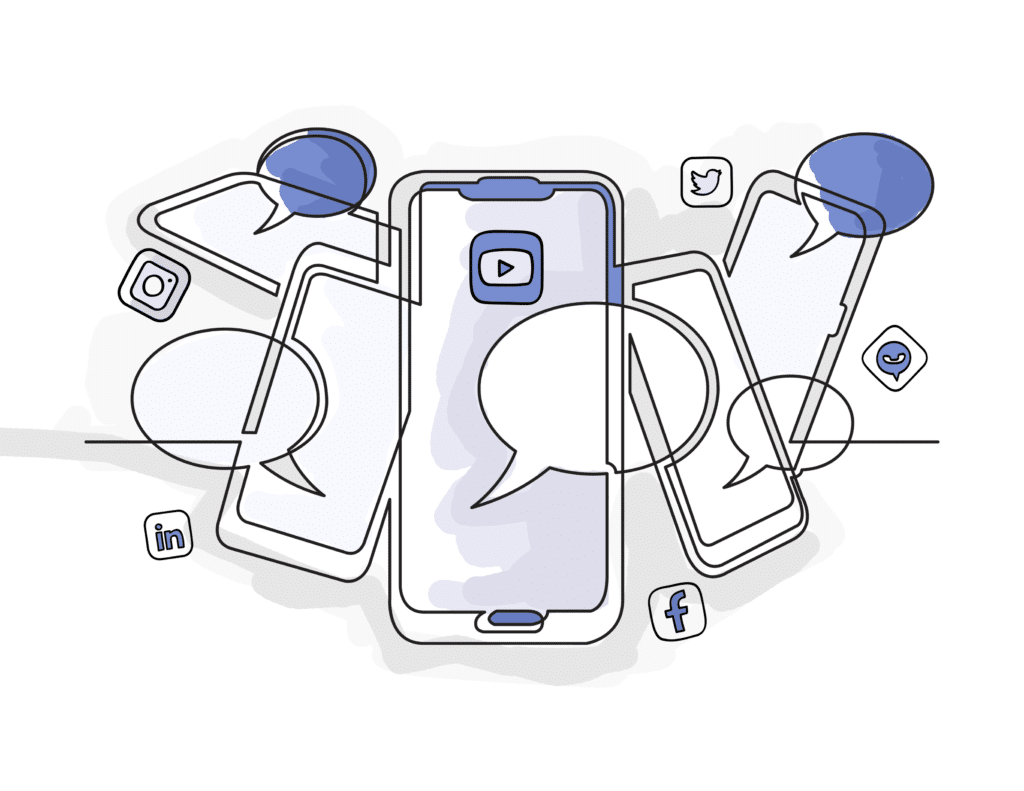Being a therapist in the internet age offers both challenges and opportunities. Therapists increasingly use social media accounts to promote their services and connect with potential patients. But social media presents unique ethical considerations for therapists. A good social media policy can help therapists to avoid ethical pitfalls.
What should a therapist’s social media policy include?
There is no one right way to write a social media policy. What you include depends on what types of social media you use and how you use them. The APA has a list of guidelines on their site, and there are webinars and continuing education courses dedicated to the ethical use of technology. In addition, we here at Belongly are offering a https://www.belongly.com/a-social-media-policy-template-for-therapists/ on our site for you to download. Here are some things to consider in creating a social media policy:
“Friending” and “Following”
At first glance, having a patient friend or follow you on social media might seem benign. But allowing patients to friend or follow you increases the risk of revealing the therapeutic relationship. The APA considers friending and following potential breaches of confidentiality.
Dual relationships
Friending and following also increases the risk of a dual relationship. A dual relationship occurs when a therapist takes on another role with a patient. The most egregious example of this is a personal relationship between therapist and patient. Social media increases the likelihood of dual relationships. A strong social media policy provides an opportunity to explain to patients that the therapeutic relationship is different from a friendship or other professional relationship.
Using search engines
It can be tempting to enter patients’ names into Google or other search engines. But accessing information that patients do not willingly provide can bias evaluation and treatment. It’s important to consider whether you are seeking information in the interest of patient care, or out of personal curiosity. If you intend to use search engines to gather information on your patients, consider making it part of the informed consent process.
The American Psychological Association recommends including a social media policy in your informed consent process.Your social media policy should explain to your clients why you have a social media policy in the first place. Be clear that it’s not because you don’t trust them; in fact, it’s the opposite…
Testimonials and reviews
Social media sites like Yelp offer patients the opportunity to review your practice. While patients have a right to express their opinions, it is a breach of confidentiality for you to respond to them, even if patients use nondescript usernames. In addition, the APA forbids therapists from soliciting positive reviews.
Benefits of social media for therapists
Although the ethical considerations may seem intimidating, social media offers many benefits for therapists, provided that it is used thoughtfully. The APA recommends keeping your professional social media accounts separate from your personal accounts, and adjusting privacy settings to avoid accidental self-disclosure. Used in this way, social media can help to establish a credible and authoritative online persona. Here are some other ways therapists can benefit from social media:
Build your “know, like, and trust” factor
“Know, like, and trust,” or KLT, is a marketing strategy that is especially important for therapists. The process of finding a therapist can be scary and overwhelming. Prospective patients often go online to determine if a therapist is a good fit for them. Used properly, social media can establish relatability, reliability, and professionalism.
Stop the spread of misinformation
There is no shortage of misconceptions when it comes to mental health. Social media can be a forum for spreading misinformation. Therapists can use social media to dispel any false claims about mental illness, including click bait about mental health “miracle cures.”
Reduce mental health stigma
The COVID pandemic has helped to normalize conversations about mental health, but stigma persists. Forty-seven percent of Americans consider seeking therapy to be a sign of weakness. Therapists can help to address this and other mental health misunderstandings.
Establish yourself as a thought leader
A thought leader is someone who offers unique perspectives and guidance based on their expertise within a certain industry. With more people turning to social media for mental health information and advice, you can promote positive change while also growing your practice
Build an online professional community
Being a therapist can be isolating. Even if you work in a group practice or mental health agency, the majority of your work is conducted in private sessions with clients. Moreover, a therapist’s work is emotionally taxing. An online community of colleagues can provide support and advice, helping to prevent burnout.
Conclusion
Social media offers many advantages for therapists, including ways to connect with prospective patients and increase brand awareness. But social media can also be the equivalent of an ethical minefield. A clear social media policy can help you avoid breaches of confidentiality and dual relationships.
Keep Reading
Want more? Here are some other blog posts you might be interested in.










